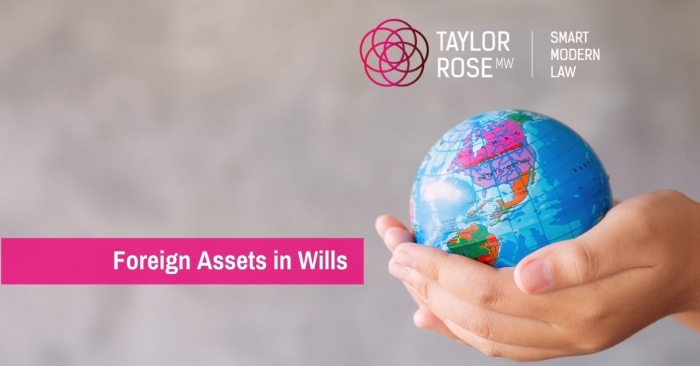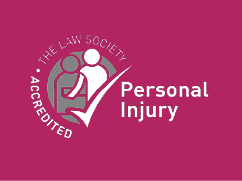Blogs
Making a will with international assets
Wed 24 August 2022

Many people have assets abroad, such as a holiday home, foreign bank account or shares listed on a foreign stock exchange. Succession laws can vary wildly between countries, and it is crucial that your assets are dealt with in the way that you would like.
It is always sensible to take advice from a lawyer in the country where the assets are, but the basic position in English law is that it depends on the type of asset and which jurisdiction it is in.
Eddie Bell, Solicitor explores how English law treats foreign assets, and how this interacts with the law on domicile and nationality.
If I have assets in another country, do I need a separate will there?
For the purposes of succession law (i.e. who inherits what), some countries have more than one legal jurisdiction. For example, the UK has three (England & Wales, Scotland, Northern Ireland) while in many federal countries each state/province is its own jurisdiction. That means that for a house in Chicago the relevant jurisdiction is Illinois, rather than the United States as a whole.
English law recognises a difference between immovable assets (e.g. property) and movable ones (e.g. bank accounts, personal effects). Immovable assets pass under the succession law of the jurisdiction where they are located, while movable assets pass under the law of your domicile.
Generally speaking, you should have a Will for each jurisdiction in which you have immovable asset. You should also take advice from a lawyer in that jurisdiction about what you need to do under the local law there.
What is domicile? Is it the same as nationality?
Domicile is a particularly thorny legal concept, but essentially it is about where an individual’s permanent home is. It is closely connected to nationality and “place of residence” in the ordinary sense but is separate from both of them.
Every person starts off with a domicile of origin; normally if your parents were married this will be whatever your father’s domicile was when you were born. If, though, your parents were not married when you were born, your domicile of origin is that of your mother.
Do some countries have rules where some of the estate has to go to the next of kin? 
Many countries in continental Europe (and their former colonies) require part of a person’s estate to go their closest family members; this is known as forced heirship. This concept does not exist in English law; a person is free to leave their estate in any way they choose. That said, the Inheritance (Provision for Family and Dependants) Act 1975 allows certain groups of people to bring a claim against the estate if it does not leave them reasonable financial provision.
We can draft your Will to leave your English estate to whomever you like, but you should take advice from a foreign lawyer about whether how this applies to the law in that country.
I am domiciled abroad but have assets in England. Will the English courts recognise a foreign Will?
Many countries will have different requirements for how a Will must be executed in order for it to be valid. Under English law, for instance, the testator has to sign the Will in the presence of two witnesses who must then also sign in the presence of the testator and each other.
Where there is a foreign element to the estate, the English courts will recognise a foreign Will if it is executed in accordance with the law of the testator’s domicile, nationality or habitual residence. It will also recognise it if it complies with the law of the jurisdiction where it was made or, to the extent that it deals with immovable assets, where the assets are located. This therefore covers a wide range of scenarios.
How does domicile affect inheritance tax?
Alongside the law on domicile for succession purposes, there is also the concept of being deemed domiciled in the UK for the purposes of inheritance tax (IHT). A non-UK domiciled individual will be deemed domiciled in the UK for tax purposes if they have been resident in the UK for:
- 15 of the last 20 tax years immediately preceding the current one and
- at least one of the four tax years ending with the current one.
Anti-avoidance legislation has also created the concept of formerly domiciled residents: these are people who were born in the UK and have a domicile of origin in a UK jurisdiction and have acquired a foreign domicile of choice but still live in the UK. They can still be treated as domiciled in the UK for IHT purposes if they:
- are resident in the UK for the current tax year and
- have been resident in the UK for at least one of the two immediately preceding tax years.
Generally, gifts to a spouse are fully exempt from IHT. However, where a UK-domiciled spouse is leaving their estate to a non-domiciled spouse, the spouse exemption is limited to £325,000. Beyond that, you would start using up your Nil Rate Band.
In order to get the full spouse exemption, a non-domiciled spouse can choose to be treated as being domiciled in the UK for IHT purposes.
What about Scottish and Northern Irish assets?
Each UK jurisdiction has its own succession law, and Scots law in particular is very different from English in a number of ways.
Assets in other UK jurisdictions are not covered by Brussels IV. It would therefore be sensible to have a Will in each jurisdiction where you have immovable assets.
![]() If you would like to discuss an intestate estate with us, please contact Eddie Bell by clicking the ‘contact us’ button to email him direct or call Eddie on 01483 670449 at our Guildford or South Croydon Office. For more information, please click here.
If you would like to discuss an intestate estate with us, please contact Eddie Bell by clicking the ‘contact us’ button to email him direct or call Eddie on 01483 670449 at our Guildford or South Croydon Office. For more information, please click here.




















